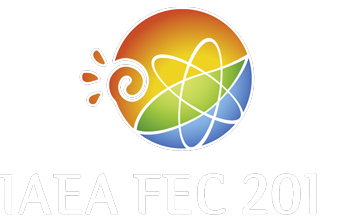Speaker
Dr
Helena Cabal
(CIEMAT)
Description
The first commercial fusion power plants are expected to start operating from 2050. How the global energy system will be as for that time nobody knows, but future can be explored by means of scenarios. In this work, several scenarios have been formulated and represented by the EFDA Times model (ETM), a global optimization energy model developed within the framework of the Socio Economic Research of Fusion project (SERF) in EFDA.
Some analyses on the evolution of the global energy system in the long term under different scenarios have been carried out with especial focus on the future role of fusion technologies. Different issues related to fusion development have been analysed for each scenario using the ETM model.
Results show that fusion technologies participation in the global electricity system by 2100 goes from 10% to 14% depending on the storyline. Using Paternalism as a Reference scenario, some additional analyses have been done. Preliminary results show that the global rate of fusion technologies growth is 12% per year from 2070 to 2100. Besides, fusion penetration is very sensitive to investment cost variations going from 13% to 42% when investment costs are 30% lower than in the Reference case and from 13% to 1% when those costs are 30% higher. Regarding the hypothetical case of fusion technologies anticipation, at the beginning, the penetration is low and similar in both scenarios, Reference and Anticipation, but at the end of the period it is much higher in Anticipation, mainly due to the advanced reactors penetration.
Finally, sensitivity analyses have been performed on key parameters such as the discount rate of each technology. The results show that the lower the discount rate, the higher the share of fusion in the global electricity system.
| Country or International Organization | Spain |
|---|---|
| Paper Number | SEE/P7-4 |
Author
Dr
Helena Cabal
(CIEMAT)
Co-authors
Dr
Chiara Bustreo
(Consorzio RFX)
Dr
Danilo Dongiovanni
(ENEA)
Dr
David Ward
(CCFE)
Dr
Francesco Gracceva
(ENEA)
Dr
Markus Biberacher
(RSA)
Dr
Poul Grohnheit
(DTU)
Dr
Yolanda Lechon
(ciemat)

